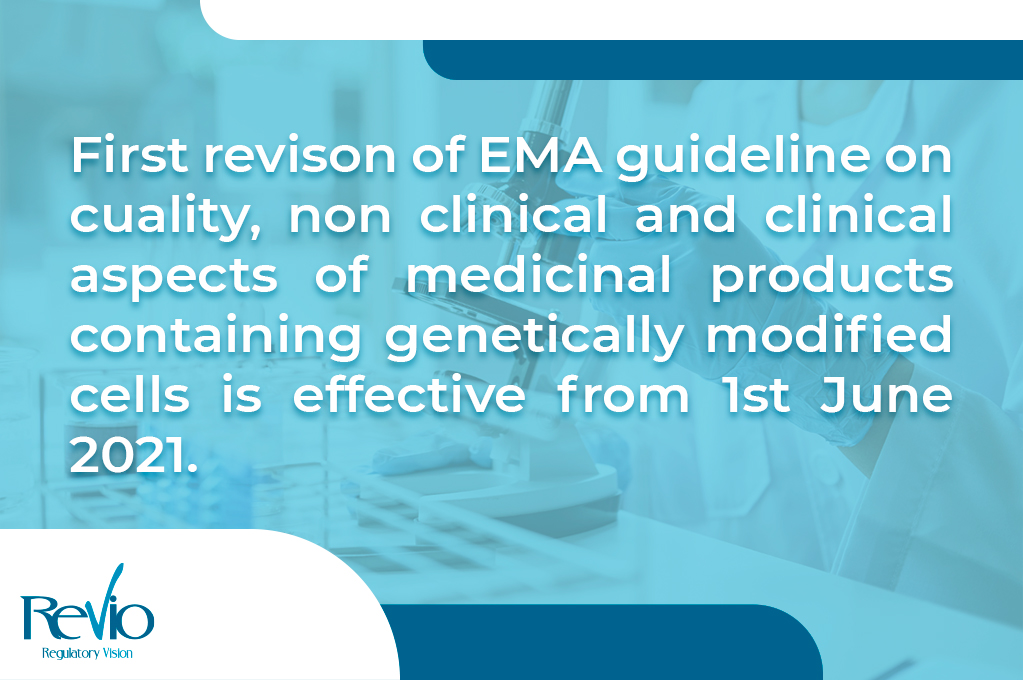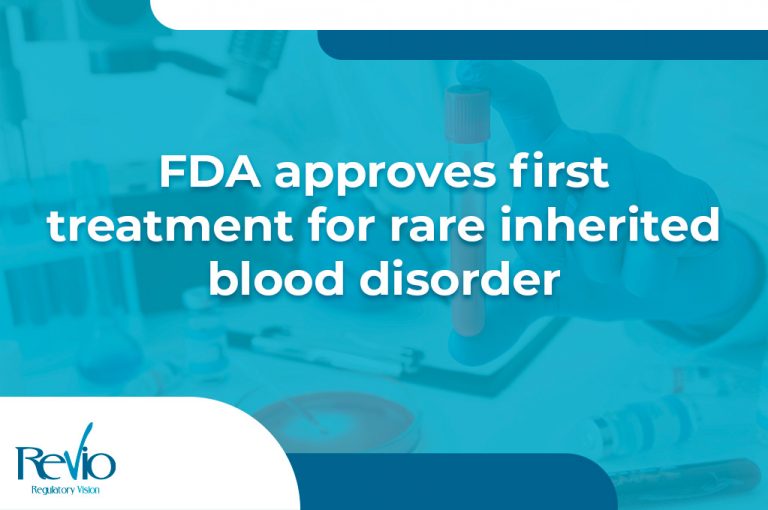In November 2020, the Committee for Medicinal Products for Human Use (CHMP) adopted a revision on the EMA’s Guideline on quality, non-clinical and clinical aspects of medicinal products containing genetically modified cells (EMA/CAT/GTWP/671639/2008 Rev. 1 – corr). On the 1st of June, the new contents of this revision came into effect in the EU regulatory landscape.
This first revision includes information related to novel technologies as CAR-T cells, induced pluripotent stem cells and genome editing. It also incorporates guidance of genetically modified cells developed using these novel technologies. Some of the most relevant updates added in this first revision are:
QUALITY ASPECTS
Starting Materials
This section is complemented adding guidance on starting material to genetically modified cell produced by or using:
- Ex vivo gene transfer, using a viral or non-viral vector and the components to produce it. Applying GMP practices from the bank system used to produce the vector.
- Genomic editing, with the vector, the mRNA, the enzyme itself, ribonucleoprotein if used, repair template, and the components to produce them. Applying GMP principles when working with vector, mRNA or proteins.
- Induced pluripotent stem cells (iPS) generated by genetic modification. In this case, guidelines on GMPs specific to Advanced Therapy Medicinal Products should be considered.
- For cells derived from genetically modified animals, GMP shall apply after their procurement and testing, following specific guidance for xenogeneic or human cell-based medicinal products.
- In combined ATMPS containing modified cells, additional substances combined with the manipulated cells shall be considered as starting materials.
Manufacturing Process
According to the relevant ATMP guideline (EMA/CAT/CPWP/686637/2011) they have introduced the risk based-approach to complement the guidance on manufacturing process involving steps for the production of cell-based and gene therapy medicinal products (GTMPs).
NON-CLINICAL ASPECTS FOR GENETICALLY MODIFIED CELLS
New guidance on non-clinical studies have been included for genetically modified cells that are expected to proliferate in vivo, such as chimeric antigen receptor (CAR)- and T-cell receptor (TCR)-modified T cells. Non-clinical studies should be designed to support dose selection for clinical trials. However, in these cases, non-clinical dose selection studies may be less informative. Therefore, dose selection should be based on the combined analysis of non-clinical data and on clinical experience with other related products.
Toxicology
Following considerations should be addressed for genetically modified cells:
- Toxicity related to the expression of a transgene.
- Risk of insertional mutagenesis.
- Vector mobilization and recombination.
- Aspects related to specific product classes such as immune cells (CAR and TCR modified T-cells, NK cells), induced pluripotent stem cells (iPS cells), and ex vivo gene edited cells.
Product class-specific considerations
In case of CAR and TCR modified immune cells potential on-target/off-tumour and off-target toxicities need to be addressed as far as possible in an appropriate animal model or by an alternative approach using a combination of in silico and in vitro analyses.
CLINICAL ASPECTS
This section considers pre-authorisation studies aiming at evaluating safety and efficacy of the genitally modified cells. These include, but are not limited to, CAT-R cells, TCRs, as well as genetically modified CD34 positive cells developed for treatment of genetic disease.
Dose selection
For CD34 positive genetically modified cells, it is accepted that the rationale for the starting dose and dose range is based on the totality of data considered relevant. Based on non-clinical data generated with the product, or clinical data generated with related products.
Pharmacodynamics
For genetically modified cells, PD assessment includes e.g., cell engraftment, assessment of numbers of target cells and production of pharmacologically active levels of target protein. In case of CAR T-cells, assessment of immune effector mechanism, cytokine levels, and tumour cell killing.
Pharmacokinetics
Different considerations apply for assessing biodistribution of different types of genetically modified cell-based products. In case of CAR-T cells products, the entire cell is required to deliver the therapeutic effect and should be the main target of this analysis.
On the other hand, for genetically modified cells intended to deliver a functional enzyme, the target of the pharmacokinetic analysis should include the target enzyme.
Clinical Follow-up
Clinical follow-up of patients enrolled with this type of products should be ensured according to the Guideline on follow-up of patients administered with GTMPs (EMEA/CHMP/GTWP/60436/2007). According to the current knowledge, a 15-year follow-up is recommended.
This guidance also includes a specific annex that contains current thinking on clinical development of CAR-T cells. If you are working or investigating this technology, we encourage you to check the official document here.
Also, we have a dedicated webpage to bring you the latest updates, guidance and developments. You can also follow us on LinkedIn.
We hope you find this useful and of interes. If you would like to discuss any of these updates with the team at REVIO, please get in touch here.




